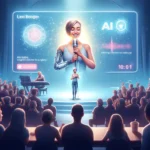As we navigate the rapidly evolving landscape of technological advancements, three innovations stand out for their potential to revolutionize the US and UK economies: robots, flying cars, and mind chips. These cutting-edge technologies are poised to transform industries, create new opportunities, and reshape the economic landscape.
Robots: Boosting Productivity and Efficiency
Robots have already begun to make a significant impact in various sectors, from manufacturing to healthcare. With advancements in artificial intelligence and machine learning, robots will become even more adept at performing complex tasks, freeing humans to focus on higher-value creative work. In the US and UK, robots will:
Enhance manufacturing efficiency, reducing costs and increasing productivity
Revolutionize logistics and transportation, streamlining supply chains
Improve healthcare outcomes, assisting with surgeries and patient care
Enable autonomous farming, increasing crop yields and reducing labor costs
Flying Cars: Transforming Transportation and Infrastructure
Flying cars, also known as personal aerial vehicles (PAVs), are on the horizon, promising to revolutionize transportation and infrastructure. In the US and UK, flying cars will:
Reduce congestion and emissions, decreasing travel times and environmental impact
Create new opportunities for air taxi services, cargo transport, and medical evacuation
Drive investment in infrastructure, including vertiports and charging stations
Enhance emergency services, enabling rapid response and search and rescue operations
Mind Chips: Unlocking Human Potential
Mind chips, also known as brain-computer interfaces (BCIs), are emerging as a groundbreaking technology. By enabling people to control devices with their thoughts, mind chips will:
Enhance productivity and efficiency, allowing people to work faster and smarter
Improve healthcare outcomes, helping individuals with paralysis or neurological disorders
Unlock new possibilities for education and learning, enabling people to absorb information more effectively
Enable people with disabilities to interact with technology in new and innovative ways
Economic Impact and Opportunities
The convergence of these technologies will have a profound impact on the US and UK economies, driving growth, innovation, and job creation. Key opportunities include:
New industries and job markets, such as robot maintenance and flying car operation
Increased productivity and efficiency, leading to economic growth and competitiveness
Improved healthcare outcomes, reducing costs and enhancing quality of life
New opportunities for entrepreneurship and innovation, driving economic growth and development
Conclusion
Robots, flying cars, and mind chips are poised to transform the US and UK economies, unlocking new possibilities for growth, innovation, and human potential. As these technologies continue to evolve, policymakers, businesses, and individuals need to embrace and prepare for the opportunities and challenges ahead. By doing so, we can harness the full potential of these innovations and shape a brighter economic future. With the right investments and policies in place, we can ensure that these technologies benefit society as a whole, driving growth, innovation, and prosperity for generations to come.







